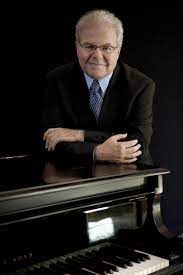These musicians won’t take a cent from this sponsor
mainA very long list of musicians has written to the Guardian, telling the Royal Opera House not to accept sponsorship from the oil company, BP.
We wonder, with respect, how they heat their houses, drive their cars… and why they clamour for public subsidy from bad Governments.
Below the list of names. And here’s the letter.

John Luther Adams Composer
Paul Griffiths Opera librettist and writer
Simon Holt Composer and professor of composition, Royal College of Music
Trevor Wishart Composer
Maja Ratkje Composer
Jem Finer Composer
Boff Whalley Composer
Georgina Born Professor of music and anthropology, University of Oxford
Max Paddison Professor of music aesthetics, Durham University
John Pickard Professor of composition & applied musicology, University of Bristol
Paul Whitty Composer and sonic arts researcher, Oxford Brookes University
Joe Duddell Composer and professor of composition, Bath Spa University
JPE Harper-Scott Professor of music history and theory, Royal Holloway, University of London
Niels Rosing-Schow Composer and professor of composition, Royal Danish Academy of Music
Dr Jonathan Hicks Musicologist and Research Fellow, King’s College London
Dr Anna Bull Sociologist and researcher in music, King’s College London
Dr Eric Egan Lecturer in composition, Durham University
Dr Geoff Baker Reader in musicology and ethnomusicology, Royal Holloway, University of London
Dr John Croft Composer and reader in music, Brunel University
Dr Stephen Graham Lecturer in music, Goldsmiths, University of London
Dr Simon Mills Lecturer in Ethnomusicology, Durham University
Dr Duncan Williams Research fellow in music and AI, University of Plymouth
Dr Sam Wilson Lecturer in music aesthetics, Guildhall School of Music and Drama
Dr Chris Garrard Composer and musicologist
Dr Graham Lack Composer
Dr Richard Bullen Composer
Dr Adam Harper Musicologist and music critic
Dr Jacob-Thompson Bell Composer and principal lecturer in postgraduate studies, Leeds College of Music
Anna Appleby Composer
Eden Bailey Musicologist
Tim Bamber Composer
Alan Bowman Conductor
Ethan Braun Composer
Leah Broad Musicologist and DPhil student, University of Oxford
Chris Brody Musician
James Bull Musician and sound recordist
Rob Burbea Composer
Lucy Cadena Musician and composer
Manos Charalabopoulos Composer and pianist
Ben Comeau Composer
Athena Corcoran-Tadd Composer and musician
Alex Cowan Undergraduate music student
Andrew Crossley Composer
Becky Dawson General manager of music at Oxford
Genevieve Dawson Musician and campaigner
Mudge FM Musician and songwriter
Robin Grey Musician
Martin Hagfors Musician
Kate Honey Composer
Owen Hubbard Musicologist
Marie Incontrera Composer and bandleader of the Eco-Music Big Band
Dan Jeffries Composer
Darragh Kearns-Hayes Composer
Alice Kelly Undergraduate music student
Luke Lewis Composer and DPhil student, University of Oxford
Sarah Loader Theatre Producer and musician
Ben Lunn Composer
David McFarlane Composer
David Mears Musician
Sally Mears Conductor
Aubrey Meyer Musician and climate campaigner
Mette Nielsen Composer
Lola Perrin Composer and pianist
Benjamin Picard Composer
Owen Roberts Composer
David Roche Composer and PhD student, University of Cambridge
John Rodge Composer, musician and teacher
Katie Rose Singer and musician
Susannah Self Composer
Julian Skar Composer and multimedia artist
Martin Stauning Composer
Isa Suarez Composer and sound artist
Anna Tam Composer and musician
Elin Vister Musician
Heather Young Musician





Comments